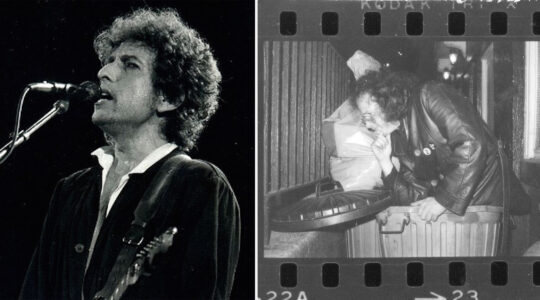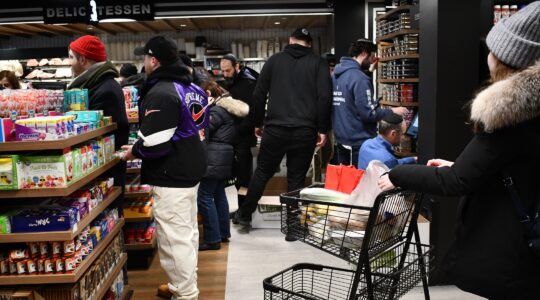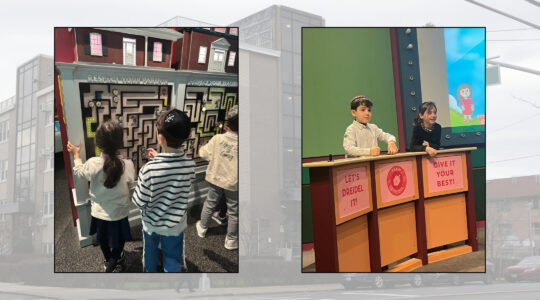Differences in levels of religious observance between Jewish partners in a relationship often cause tensions and hurt feelings. But in Amy Holson-Schwartz’s new play, “Can I Really Date a Guy Who Wears a Yarmulke?” starting this weekend at the Midtown International Theatre Festival, these differences become the subject of romantic comedy. Directed by Jay Falzone, the play has been described as “Scrubs” meets “How I Met Your Mother,” with a Jewish twist.
The 90-minute play follows the trials and tribulations of Eleanor (Catherine LeFrere), a secular New York Jewish woman who falls for a handsome Jewish doctor, Aaron (Jason Liebman) who seems perfect for her — except for his kipa. Ryan Wood, Jessica Smolins, David Licht and Bonnie Corso are also in the cast.
The playwright, who describes herself as a “lapsed Reform Jew,” grew up in Westport, Conn. She stopped attending Hebrew school in the second or third grade and her family observed few Jewish holidays. Nevertheless, she became interested in religion, double majoring at the New School in theater and religious studies, with a focus on medieval Christianity.
“The Yarmulke Play,” as Holson-Schwartz abbreviates it, was inspired not by a relationship but by a Birthright Israel trip. “I hated it,” she told The Jewish Week. “I didn’t understand the people or the culture. Yet everyone was so happy to see me; they kept welcoming me home. I wondered what was wrong with me that I was supposed to belong and didn’t feel that I did.”
After returning home to her apartment in the West Village, Holson-Schwartz felt completely alienated from her Jewish identity. But while sitting on the subway, a “sweet guy got on at 34th Street and sat down next to me. I saw that he was wearing a kipa, and I wondered why I felt that I could never date him.” While her experience had been mostly working in arts administration and writing screenplays, she decided to write a play about what such a relationship might be like.
Complicating the picture is that Aaron, like many young Modern Orthodox Jews, is inconsistent in his observance; he goes out sometimes without his kipa, eats in non-kosher restaurants, and is eager to bend the rules when it comes to premarital sex. This leads to a pivotal scene in the play in which Eleanor “calls him out” on what she sees as his hypocrisy. “Eleanor gets to say things to Aaron that I would never say to another person,” the playwright laughs.
The play arrives at a time when other young Jewish playwrights are exploring similar themes. “Sex and the Holy Land,” Melanie Zoey Weinstein’s comedy — also inspired by a Birthright trip — about female college students having a series of eye-opening erotic adventures in the Holy Land, ran last summer at the Fringe Festival.
And “Modern Orthodox,” Daniel Goldfarb’s play about a young Orthodox houseguest who upends the lives of an Upper West Side secular Jewish couple, ran Off Broadway in 2004. Holson-Schwartz says that she knows a lot of young Jewish artists in New York who are asking what she sees as the biggest question: “How can we reconcile being Jewish with being modern Americans?”
The New York Jewish Week brings you the stories behind the headlines, keeping you connected to Jewish life in New York. Help sustain the reporting you trust by donating today.




